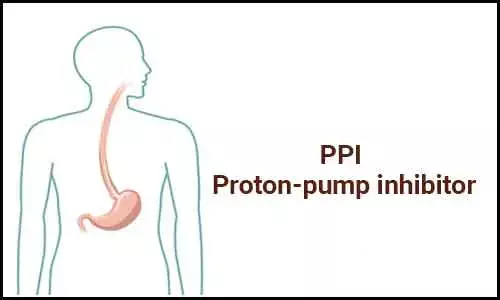- Home
- Medical news & Guidelines
- Anesthesiology
- Cardiology and CTVS
- Critical Care
- Dentistry
- Dermatology
- Diabetes and Endocrinology
- ENT
- Gastroenterology
- Medicine
- Nephrology
- Neurology
- Obstretics-Gynaecology
- Oncology
- Ophthalmology
- Orthopaedics
- Pediatrics-Neonatology
- Psychiatry
- Pulmonology
- Radiology
- Surgery
- Urology
- Laboratory Medicine
- Diet
- Nursing
- Paramedical
- Physiotherapy
- Health news
- Fact Check
- Bone Health Fact Check
- Brain Health Fact Check
- Cancer Related Fact Check
- Child Care Fact Check
- Dental and oral health fact check
- Diabetes and metabolic health fact check
- Diet and Nutrition Fact Check
- Eye and ENT Care Fact Check
- Fitness fact check
- Gut health fact check
- Heart health fact check
- Kidney health fact check
- Medical education fact check
- Men's health fact check
- Respiratory fact check
- Skin and hair care fact check
- Vaccine and Immunization fact check
- Women's health fact check
- AYUSH
- State News
- Andaman and Nicobar Islands
- Andhra Pradesh
- Arunachal Pradesh
- Assam
- Bihar
- Chandigarh
- Chattisgarh
- Dadra and Nagar Haveli
- Daman and Diu
- Delhi
- Goa
- Gujarat
- Haryana
- Himachal Pradesh
- Jammu & Kashmir
- Jharkhand
- Karnataka
- Kerala
- Ladakh
- Lakshadweep
- Madhya Pradesh
- Maharashtra
- Manipur
- Meghalaya
- Mizoram
- Nagaland
- Odisha
- Puducherry
- Punjab
- Rajasthan
- Sikkim
- Tamil Nadu
- Telangana
- Tripura
- Uttar Pradesh
- Uttrakhand
- West Bengal
- Medical Education
- Industry
PPIs and H2RAs have same impact on mortality, finds study

Canada: PPIs and H2RAs more or less have a similar effect on mortality compared to no treatment, suggests a recent study in the journal Intensive Care Medicine. However, based on low certainty evidence the possibility of slightly increased mortality associated with PPI use cannot be excluded.
Proton pump inhibitors (PPIs) and histamine-2 receptor antagonists (H2RAs) use help to achieve reductions in gastrointestinal bleeding. The greater benefit of PPIs over H2RAs may be important for patients with higher bleeding risk.
Based on findings from the PEPTIC trial that has raised the issue of increased mortality with PPI use over H2RAs, Ying Wang, McMaster University, Hamilton, Canada, and colleagues updated their prior systematic review and network meta-analysis (NMA) that addressed the impact of pharmacological gastrointestinal bleeding prophylaxis in critically ill patients.
The researchers searched for randomized controlled trials that examined the safety and efficacy of gastrointestinal bleeding treatment with PPIs, H2RAs, or sucralfate versus one another or placebo or no prophylaxis in adult critically ill patients. They performed Bayesian random-effects NMA and conducted analyses using all PEPTIC data. Also, they performed a restricted analysis using only PEPTIC data from high compliance centers. The GRADE approach was used to quantify absolute effects and assess the certainty of evidence.
A total of seventy-four trials consisting of 39 569 patients were included in the study.
Key findings of the study include:
- Both PPIs (risk ratio (RR) 1.03) and H2RAs (RR 0.98) probably have little or no impact on mortality compared with no prophylaxis.
- There may be no important difference between PPIs and H2RAs on mortality (RR 1.05), the 95% credible interval of the complete analysis has not excluded an important increase in mortality with PPIs.
- Both PPIs (RR 0.46) and H2RAs (RR 0.67) probably reduce clinically important gastrointestinal bleeding; the magnitude of reduction is probably greater in PPIs than H2RAs (RR 0.69), and the difference may be important in higher, but not lower bleeding risk patients. PPIs (RR 1.08, low certainty) and H2RAs (RR 1.07, low certainty) may have no important impact on pneumonia compared with no prophylaxis.
"This updated NMA confirmed that PPIs and H2RAs are most likely to have a similar effect on mortality compared to each other and compared to no prophylaxis; however, the possibility that PPIs may slightly increase mortality cannot be excluded (low certainty evidence)," wrote the authors.
The study, "Efficacy and safety of gastrointestinal bleeding prophylaxis in critically ill patients: an updated systematic review and network meta-analysis of randomized trials," is published in the journal Intensive Care Medicine.
Dr Kamal Kant Kohli-MBBS, DTCD- a chest specialist with more than 30 years of practice and a flair for writing clinical articles, Dr Kamal Kant Kohli joined Medical Dialogues as a Chief Editor of Medical News. Besides writing articles, as an editor, he proofreads and verifies all the medical content published on Medical Dialogues including those coming from journals, studies,medical conferences,guidelines etc. Email: drkohli@medicaldialogues.in. Contact no. 011-43720751


